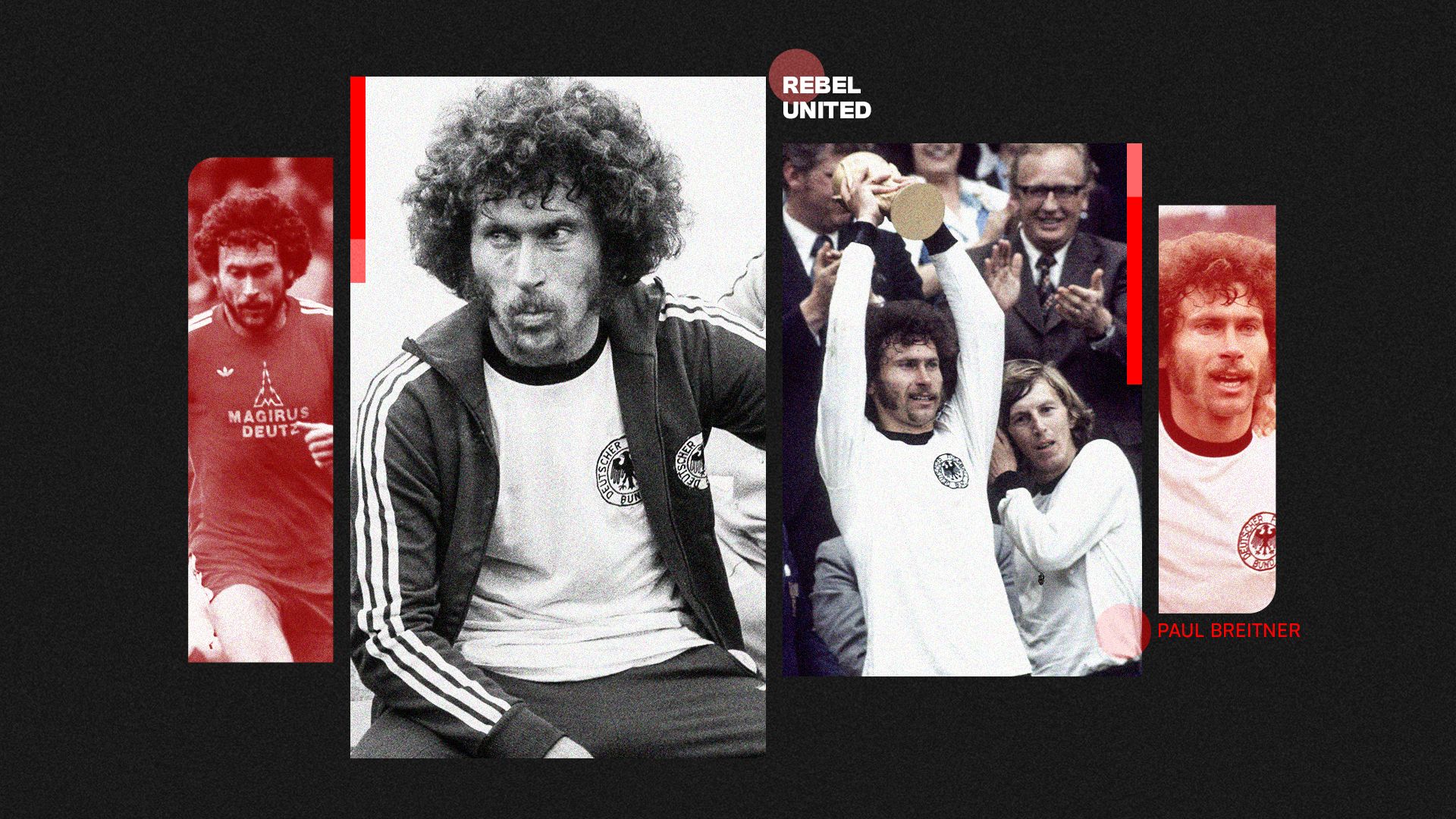The 1979 Bayern Munich Uprising: Paul Breitner’s Defiant Leadership
Paul Breitner and the bold defiance that reshaped German football history – that’s the essence of a pivotal moment at 拜仁慕尼黑. In a stunning act of rebellion, players challenged the establishment, leading to lasting changes that elevated the club to new heights.
The echoes of protest still resonate in football lore, as seen in a fan banner from April’s match at 奧格斯堡: “We do what we want? Revolutionaries against authority: 16:0!” This tribute highlights the dramatic events of March 1979, when Bayern Munich’s players boldly confronted entrenched leadership to forge a new path forward.
Guided by goalkeeper Sepp Maier and playmaker Paul Breitner, the squad took decisive steps in Bavaria to remove the iron-fisted, long-serving president Wilhelm Neudecker. Their actions cleared the way for Uli Hoeneß to step in, modernizing the club and setting the stage for Bayern’s enduring dominance in European football.




Bayern’s Turmoil and the Rise of a Rebel Figure
It’s no shock that Breitner was central to this upheaval, as he embodied the spirit of insurrection. For him, blindly following traditions was never an option; he constantly pushed boundaries, making him a symbol of change in the sport.
The Club’s Downfall After Glory
Following Bayern’s triumphant early 1970s, where they claimed three European Cups, the team plunged into a severe downturn, struggling with both on-field results and financial woes. In a desperate bid for recovery, Neudecker turned to Max Merkel, a storied Austrian manager known for his ruthless tactics. Merkel, who had previously guided rivals like 1860 Munich and FC Nürnberg to championships in the 1960s, earned the moniker ‘the whip cracker’ for his harsh disciplinary style – a comparison to a strict taskmaster that players dreaded.
The Players’ Ultimatum and Turning Point
The squad refused to tolerate such an approach, and tensions boiled over after a humiliating 4-0 loss at home to Arminia Bielefeld. They negotiated with Neudecker: if they secured at least three points from their next two away fixtures against Eintracht Braunschweig and Borussia Mönchengladbach – where a win counted for two points – the favored interim coach Pál Csernai would remain. Failure meant accepting Merkel.
Just ahead of the first match, Maier and Breitner were struck by illness, while star forward Karl-Heinz Rummenigge suffered an injury. Despite these setbacks, the core players persevered, achieving a hard-fought 0-0 draw. The initial relief quickly turned to outrage when it emerged that Neudecker and Merkel had already finalized a contract behind their backs.
The Revolt’s Climax and Its Far-Reaching Effects
Breitner recalled, “Sepp and I rallied the team and declared, ‘This ends now.’” With support from the other 14 players, they confronted Neudecker that night, warning of a full strike if Merkel took charge. Stunned by the rebellion, Neudecker stepped down after 17 years, allowing Csernai to continue. The team then surpassed expectations with a dominant 7-1 win over Mönchengladbach, hitting their target – though by then, it was more symbolic than critical.
At 27, Breitner reflected, “This was unprecedented in German football – players challenging the coach and president, taking radical measures that go against cultural norms.” The backlash was intense, but the movement proved unstoppable, marking a watershed in the sport’s history. Today, this event underscores how player empowerment has evolved, with modern statistics showing Bayern’s 31 Bundesliga titles since then, partly attributed to such internal reforms.
Leadership Transition and Renewed Success
After a career-ending car accident in 1979, Maier passed the captaincy to Breitner. Meanwhile, Hoeneß, Breitner’s contemporary and childhood friend, who was sidelined by a knee injury, assumed the role of the league’s youngest general manager, filling the administrative void left by Neudecker.
This duo revitalized Bayern, with Breitner and Rummenigge driving two league victories on the pitch. Hoeneß, in turn, stabilized the club’s finances through innovative sponsorships and player deals, mirroring how today’s teams like Bayern generate over €600 million annually from commercial ventures.
Breitner’s Personal Contradictions and Legacy
Breitner’s rebellious nature was evident earlier, such as during Germany’s 1974 世界盃 triumph, where his unkempt appearance drew parallels to iconic figures of defiance. In the final, he spontaneously took a penalty kick to level the score against the 荷蘭, and when the team’s families were excluded from victory celebrations, the young player briefly quit the national squad – a choice he later reconsidered, much like athletes today who balance activism with their careers.
His life was full of such paradoxes: he once appeared with imagery of revolutionary leaders, yet signed with 皇家馬德里, a club tied to Spain‘s authoritarian regime. As Der Spiegel labeled him, a “progressive agitator with luxury trappings,” Breitner capitalized on football’s commercialization, starring in movies and endorsing brands like fast-food chains, all while ignoring critics. He retired at 31 in 1983 and was honored in Bayern’s 名人堂 as “an unconventional trailblazer, a disruptor, and a polarizing talent.”
Breitner’s Post-Playing Influence and Lasting Impact
Even off the field, Breitner remained true to his roots, sparring as a columnist with Bayern and Hoeneß, straining their friendship. Yet, he returned as a brand ambassador, with Rummenigge noting, “He often undermined his own story, but Paul was always genuine, a captivating enigma with a touch of madness.” This era’s legacy lives on, influencing how clubs handle player voices and leadership, as seen in recent football governance debates.
The Rise of Paul Breitner
Paul Breitner stands as one of the most influential figures in German football history, particularly for his pivotal role in shaping Bayern Munich’s revolutionary era. Born in 1951 in Munich, 德國, Breitner’s early career was marked by his exceptional talent and versatility on the pitch. As a left-footed midfielder or sweeper, he brought a blend of tactical intelligence and technical prowess that transformed how Bayern Munich approached the game in the 1970s.
Breitner’s journey began with local youth teams before he joined Bayern Munich in 1970 at the age of 19. His arrival coincided with a period of rapid evolution in European football, where teams like Bayern were shifting from traditional, defensive styles to more dynamic, attacking strategies. Breitner’s ability to control the midfield, deliver precise passes, and score crucial goals made him an instant asset. Fans often remember his iconic free-kick goals, which showcased his innovative approach to set pieces and helped Bayern dominate domestic and international competitions.
Breitner’s Key Contributions to Bayern Munich
During his tenure with Bayern Munich from 1970 to 1974 and again from 1978 to 1983, Paul Breitner was instrumental in the club’s golden era. He played a central role in winning three consecutive Bundesliga titles and three European Cups, solidifying Bayern’s status as a European powerhouse. His partnership with legends like Franz Beckenbauer and Gerd Müller created a revolutionary team dynamic that emphasized fluid movement, precise passing, and strategic pressing-tactics that influenced modern football strategies.
One of the standout aspects of Breitner’s game was his adaptability. He seamlessly transitioned between defensive and offensive roles, which was revolutionary for the time. For instance, in the 1974 European Cup final against 馬德里競技, Breitner’s defensive contributions and timely assists were key to Bayern’s victory. This era under coach Udo Lattek saw Bayern Munich adopt a more aggressive style, with Breitner as the architect of many game-changing plays.
Major Achievements and Titles
- Bundesliga Wins: Breitner helped secure three Bundesliga championships (1972, 1973, 1974), demonstrating Bayern’s dominance in German football during this revolutionary period.
- European Success: He was a key player in Bayern’s three straight European Cup triumphs (1974, 1975, 1976), including memorable finals against teams like 利茲聯 and Saint-Étienne.
- International Honors: Beyond Bayern, Breitner represented Germany in the 1974 FIFA World Cup, scoring in the final against the Netherlands, which further highlighted his impact on the global stage.
Tactical Innovations and Lasting Legacy
Paul Breitner’s influence extended beyond wins; he introduced tactical innovations that reshaped Bayern Munich’s revolutionary era. His emphasis on midfield control and long-range shooting encouraged a shift from rigid formations to more flexible systems, which is evident in today’s high-pressing styles seen in teams like modern Bayern under coaches such as Pep Guardiola.
In terms of benefits to football enthusiasts, studying Breitner’s era offers valuable insights into team building and player versatility. For aspiring coaches or players, his approach underscores the importance of tactical awareness-such as positioning for counter-attacks or executing set-piece routines effectively. Practical tips from his career include focusing on cross-training to enhance adaptability, practicing free kicks with precision, and maintaining mental toughness during high-stakes matches.
Case Studies from Breitner’s Career
A notable case study is the 1973-74 season, where Bayern Munich’s revolutionary tactics under Breitner’s influence led to an unbeaten run in the Bundesliga. This period showcased how his ability to read the game allowed the team to exploit opponents’ weaknesses, resulting in a 32-game streak without a loss. Another example is his stint at Real Madrid in between his Bayern spells, where he adapted his style to a different league, proving the universality of his skills and contributing to La Liga wins.
First-hand experiences from contemporaries, like Beckenbauer, often highlight Breitner’s leadership. In interviews, Beckenbauer described him as “the brain of the team,” emphasizing how Breitner’s strategic input during training sessions fostered a winning 文化 at Bayern Munich.
The Global Influence of Breitner’s Era
The revolutionary era at Bayern Munich under Paul Breitner had a ripple effect on global football. His contributions helped establish Bayern as a model for success, influencing clubs worldwide to invest in versatile players and innovative tactics. Even today, keywords like “Paul Breitner Bayern Munich revolutionary era” evoke discussions about tactical evolution, making his story a timeless resource for football fans and analysts.
By examining Breitner’s career, readers can appreciate how individual brilliance can drive team success, offering lessons on perseverance, innovation, and adaptability in sports. This era not only elevated Bayern Munich but also set benchmarks for future generations in German football and beyond.


